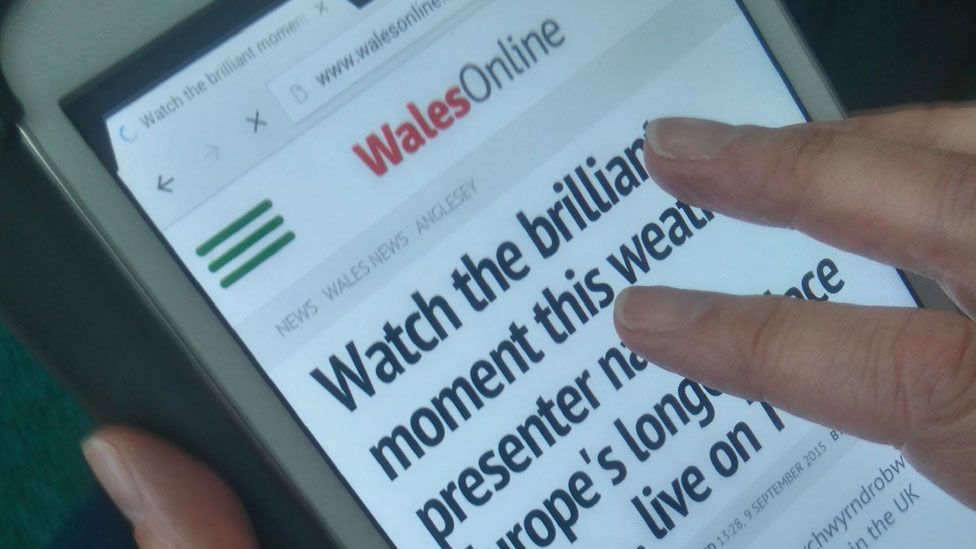How Popular News can Save You Time, Stress, and Money.
How Popular News can Save You Time, Stress, and Money.
Blog Article
Popular News - Questions
Table of ContentsThe Basic Principles Of Popular News The Best Guide To Popular NewsHow Popular News can Save You Time, Stress, and Money.The Main Principles Of Popular News
Age is also a consider the way people check out the function of social media sites. More youthful social media sites news customers are most likely to state it has influenced their discovering for the far better. Concerning half of social networks information consumers ages 18 to 29 (48%) say news on social media makes them far better notified, compared to 37% of those 30 to 49, 28% of those 50 to 64, and 27% of those 65 and older.Reporters weigh news values when determining whether or not to cover an occasion or announcement. Below are the worths that we think about when establishing an outreach technique. Perhaps one of the most vital component of newsworthiness is whether the story being interacted impacts a news outlet's target market. For instance, allow's envision researchers have actually discovered a cost-effective solution to a common problem.
Research on a state's new tax code likely will not produce the very same passion throughout state boundaries. Occasionally experts can help localize a larger national story that affects more than just a city or state.
If you are releasing relevant research study, loophole in MarComm before the write-up being published to make sure that the pitch can emphasize the newest element of the story: the magazine of the research study. Occasions and news that involve high-profile figures are most likely to produce media protection. Check outs from nationwide numbers typically need months of prep work as a result of awaited area passion.
The Main Principles Of Popular News
Stories commonly include some sort of dispute. Necessarily, these tales are nearly always debatable to some level. Luckily, university team and faculty are generally regarded as unbiased specialists. We can help minimize potential reputational danger with these tales while additionally enhancing the odds of creating protection. While a number of the above news worths are interwoven, human interest stories commonly differ.
Human rate of interest components can add information value to other tales that may seem lacking in the various other worths. The novelty or peculiarity of a situation can aid affect whether or not a news outlet is most likely to cover a tale. While this is not an extensive list, checking to see if your news product or occasion has these top qualities prior to calling us will help you identify which elements hold the most news value.

Popular News Can Be Fun For Anyone
There is also significant evidence that even more consumers can begin to spend for news in the futureif authors can comprehend them and offer them well. Half of those that do not pay for information actively seek news and appear like clients in different ways. And virtually 2 in 10 of those who do not register for news now internet show they are inclined to start to pay in the future.
We then ask a collection of concerns to figure out whether individuals spend for particular types of information sources (Popular News). We asked individuals to call the sources they make use of most oftenwhether they pay for them or nothow they utilize them, the particular things they take into consideration crucial regarding them, and some related inquiries concerning the expense and value of that resource
People are drawn to news as a whole for 2 reasons above others: A desire to be educated residents (paper clients particularly are extremely encouraged by this) and since the magazine they register for excels at covering certain subjects concerning which those subscribers particularly care. While there are a host of reasons, the No.
Even more than 4 in 10 likewise cite the fact that loved ones sign up for the very same product (Popular News). Even more than a third of individuals claim they originally subscribed in feedback to from this source a discount or promo. In print, individuals also are relocated greatly to sign up for obtain vouchers that save them money, something that has untapped effects in digital
The Buzz on Popular News
Regarding fifty percent are "information seekers," implying they actively choose news instead than primarily encountering it in a much more passive method, though the news that nonpayers are looking for (in the meantime, at the very least) is often regarding national politics. Like customers, a lot of these individuals additionally obtain information numerous times a day, make use of the information in methods comparable to clients, and have an interest in similar topics, including foreign or worldwide news.

Of those who do pay, 54 percent subscribe to papers in print or digitally, which stands for 29 my blog percent of Americans in general. The majority of them acquire a print magazine in addition to their paper and spend for two to four news resources in total, some a lot more. And while 53 percent are long-time subscribers (5+ years), greater than a quarter (27 percent) have acquired their newspaper membership within the previous year.
Few print customers assume it likely they will switch to a digital-only registration in the future, and more than half of those that prefer digital have actually never spent for a print version of the very same source. Completely 75 percent of newspaper payers state they largely checked out the paper in print, while 21 percent are mainly digital customers, and 4 percent describe themselves as equally split.
Report this page